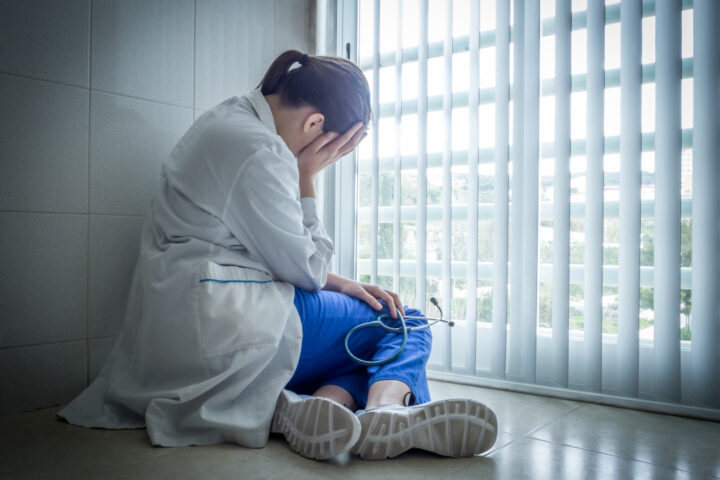Early this year, an unknown disease affecting horses broke out in one local community and downed people who consumed the presumably infected horse meat. For the most part of the disease outbreak, healthcare institutions had the difficulty of identifying the pathogen. Results of the diagnostics done on ill patients took some time to arrive. The mode of transmission of the pathogen, hasn’t been established yet early on in the disease spread. Manpower and logistics for validated methods of disease surveillance is also depleting resources of government healthcare unit handling the case. These made outbreak surveillance became increasingly difficult if not impossible in some areas.
In develop countries, disease or outbreak distribution maps gives our healthcare leaders an overview of the size and magnitude of outbreak. It is usually based on validated diagnostic results from centers equipped with such capabilities. But even in such highly develop healthcare systems, results from equipped labs may still take at least 2 weeks to be confirmed.
What about a symptoms map – a map of disease outbreak base on symptoms alone? What about mobile phones or sms maps? Reporting using mobile phone and sms is already problematic. We don’t have the huge manpower on the ground and centrally to collect and collate data from sms.
I was toying on an idea. Can we crowdsource disease surveillance using social media? Since I was a bit familiar with google mapping, thats what came immediately to my mind. Then twitter. Then Facebook. and my list of possibilities went on.

In the recent days, social media became a common platform where people reveal their locations and travels. You might also notice the frequent status updates containing contextual concerns such as “sick” , “sneezing”, “hospitalized” and many other health related issues . Those data can be aggregated, funneled, analyzed (so called data mining) and be made available for health research or even mitigate disease spread.
It is without some caveats though.
Crowdsourcing disease surveillance raises several questions about health data privacy and accuracy. Many healthcare personnel are reluctant to actually use it even as an adjunct to validated, diagnostics based disease surveillance. Given that the Philippines don’t have that many diagnostics centers for disease outbreaks, can social media crowdsourcing help in disease surveillance?
Join #HealthXPh this saturday August 16 2014, 9PM Manila time , as we discuss crowdsourcing disease surveillance using social media.
- T1. Is there a role for social media crowdsourced health data for outbreak or disease surveillance? Why or why not?
- T2. As a patient/ HCP will you approve the use of volunteered social media data for outbreak or disease surveillance?Why or why not?
- T3. Who do you think is accountable for all the crowdsource data generated and its analysis? Will it be the social media platform? the data miner?
As closing thought, please give one major reason why you would use/allow (not use/ not allow) crowdsourced social media data for disease surveillance.
See you on saturday for an interesting tweetchat on one timely topic!
References:
Using Twitter to Put Disease Outbreaks on the Map
http://www.sciencefriday.com/blogs/07/20/2012/using-twitter-to-put-disease-outbreaks-on-the-map.html?audience=4
2014 Ebola Outbreak in West Africa – Outbreak Distribution Map
http://www.cdc.gov/vhf/ebola/resources/distribution-map-guinea-outbreak.html
http://www.crowdbreaks.com/
http://www.sickweather.com/live-map.php
Trending Now: Using Social Media to Predict and Track Disease Outbreaks
http://www.ncbi.nlm.nih.gov/pmc/articles/PMC3261963/
Twitter Can Track Disease — Can It Predict Outbreaks?
http://mashable.com/2012/06/08/social-media-disease-tracking/
How Twitter Tracks the Spread of Disease in Real Time
http://mashable.com/2011/10/19/twitter-track-h1n1/
Social Media and Environmental Health Crises: An Examination of Public Response to Imported Drywall and Perchlorate Health Risks
https://apha.confex.com/apha/139am/webprogram/Paper247309.html






